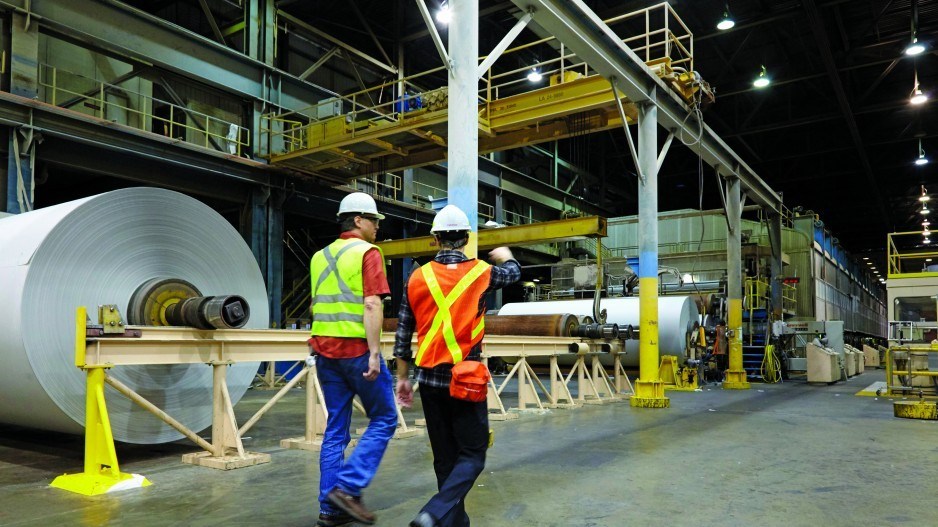The paper mill in Crofton will not resume operations until the end of November at the earliest, meaning 70 workers will not be back on the job until December.
Paper Excellence Canada announced Friday that the curtailment of its paper mill operations will continue despite an improvement in market conditions.
In a statement, the company noted market conditions continue to support the restart of its pulp operations at the plant, meaning more than 300 workers are still on the job.
“Paper Excellence Canada continues to work with our employees to mitigate the impact of the ongoing paper production curtailment,” the company said. “The sales team continues to work with customers to provide alternative products from Catalyst Alberni mill or other mills within the Paper Excellence Group family of companies where possible.”
Earlier this month, Paper Excellence restarted kraft pulp operations at the Catalyst Crofton pulp and paper mill.
The first temporary curtailment of mill activities was announced in May for June 30 to July 31, followed by a second for the month of August. The third extended it until early October.
Paper Excellence Canada has an overall work force of over 2,100 and an annual production capacity of about 2.5 million tonnes.
In January, Paper Excellence announced it was investing nearly $50 million in the Crofton mill.
The federal government contributed $14.3 million and the province put in $4.5 million toward fostering innovation and sustainability.
The upgrade included transforming a machine to produce stronger water-resistant paper aimed at reducing the need for single-use plastics in the food industry. It also included using waste bark and wood in the mill’s boiler instead of natural gas.




